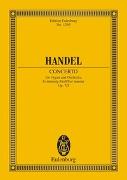Defence of Commodore Jesse Duncan Elliott
BücherAngebote / Angebote:
Excerpt from Defence of Commodore Jesse Duncan Elliott: Of the United States Navy, Read by the Hon. Geo, Mifflin Dallas, Before the Naval Court Martial at Philadelhia, June 20, 1840, With Letters and Documents Explanatory of Portions of the Defence
As similar transactions are constantly taking place in every country, as scarcely a daily jour nal appears that does not record some such mani. Testation of mutual kindness between individuals, I am bound to suppose that in the eyes of those who impeach my acceptance ojoprcsent, there must have been some peculiarities in it, which give to what is otherwise an ordinary and innocent affair, a totally opposite character. What these poi sonous ingredients were, I have not: been told, and am left to conjecture as well as I may. Had accusation specified the noxious particulars, and enabled me to turn at once to the pith and mar. Row of the supposed offence, much trouble would have been spared and more justice done me. As it is, the Court must pardon me while I attempt to analyze in order to repel a charge so vague and indefinite.
I' do not know that it has ever been clearly set tled how far the administration of military law can penetrate into the social relations and strictly in. Dividual actions of military men. There are, we all feel, certain spheres within which we claim to act as we please, with absolute independence, unchecked but by our own sense of right. These are spheres as to which no uniform rule can be assigned, which do not involve illegality, vice, Or dishonor and which every gentleman, with every shade of opinion and every variety of taste, must regulate exclusively for himself. They are be yond and above civil regulation, and cannot well be subjected to martial authority. Would it not be deemed strange, ifthe Chiefof the Naval Depart ment, happening to be a. Zealous champion of what is known as the Temperance Cause should, in the sincere spirit of amendment and reform, convoke Courts to determine whether this or that officer were not guilty of scandalous conduct tending to the destruction of good morals by non-adhesion to a pledge of total abstinence? Would it not be deemed equally strange, if another Chief, animated by a truly chivalrous spirit, should resolve to en force, through the agency of the same tribunals, his code of minor morals, his principles of polite ness, and his conceptions of true courtesy? Or, suppose, in the progress of intolerant perfection, that it should be esteemed evidence of the unbe coming aad unofiicerlike. To keep such or such company, to form such or such intimacies, to se knowledge such or such friendships? These are questions which admit of only one series of an swers, the courses suggested would be pronounced wrong, because invasive of essential and inviola ble rights. And yet are they not directly illustra tive of the case before you? Who is to teach me which of my fellow beings I ought and which I ought not to respect and love? Who is to teach me to discriminate between the heartfelt efi'ering of the grateful tar and the glittering gift of a Pe ruvian Vice King, to reject the former as deroga tary, to accept the latter as ennobling? By what compulsion am I to be instructed in the exalted and mysterious delicacies of refine-ment which cling to those who are above, and spurn those who are below? The'lesson, gentlemen, however, valuable, would be too dearly bought if its principle subject us all, in our private relations and our moral sen timents, to perpetual question and controul. Our service, instead of the gallant and generous one it is, would degenerate into a corps of mutual spies, and the bravest and the best would in succession sink under some charge of eccentric or heedless deportment, of coarse taste, or speculative error.
About the Publisher
Forgotten Books publishes hundreds of thousands of rare and classic books. Find more at www.forgottenbooks.com
Folgt in ca. 5 Arbeitstagen




